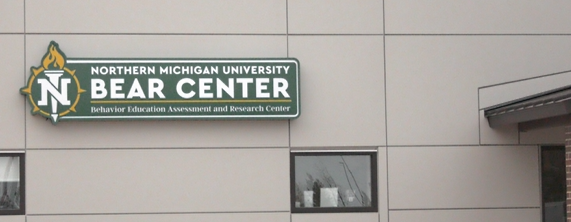MARQUETTE, Mich. (WZMQ) – NMU’s Behavior Center moved to a new location on Presque Isle after being in the service building. The new facility allows students further the research of ABA or applied behavior analysis.
The Behavior Education Assessment and Research Center received nearly $500,000 from the Michigan Health Endowment Fund for more treatment rooms and more space for therapy sessions. “Many of the kids that we work with have significant or severe difficult-to-manage behaviors ranging anywhere from self-injury to aggression property destruction fairly significant tantrum behaviors,” said Director of the B.E.A.R. Center Jacob Daar.
The new location provides support for multiple members of the community, including children with developmental disabilities, and even family support as well. “Some of the kids come in here and they don’t have any form of communication at all. Their parents are the only ones that they are able to kind of show their wants and needs to,” said Registered Technician Cheyenne Nutlouis.
“Almost 50% of them have significant deficits in language and communication with about 33% of them never developing vocal verbal language. I don’t mean you’re not choosing not to speak, it’s not having the understanding of language,” continued Daar.
Students who are training to become licensed behavior analysts require field experience of 1000 to 1500 hours under supervision so these graduate students are also helping within the home. “Our students drive almost every day to work with the kids in the morning in the home environment many of them will travel and work with the children in the school,” continued Daar.
“We are there to support these kids in every step of their day I have been at houses where I am the first thing this child sees when they wake up and we are working through a morning routine so that they can gain independence and so that they can go out into the world,” said Registered Technician Zoe Broadus.
The majority of individuals with autism have low communication skills. Dr. Baar notes that this creates that ever-growing barrier in a world that’s mostly dominated by vocal communication. “I think an important part of any quality ABA approach is an emphasis on functional and pragmatic language,” continued Daar.
As the B.E.A.R. Center is a new and larger space, it opens more opportunities for the students to continue behavior research and assist the families that might benefit. Click here for more information on the B.E.A.R. center.










